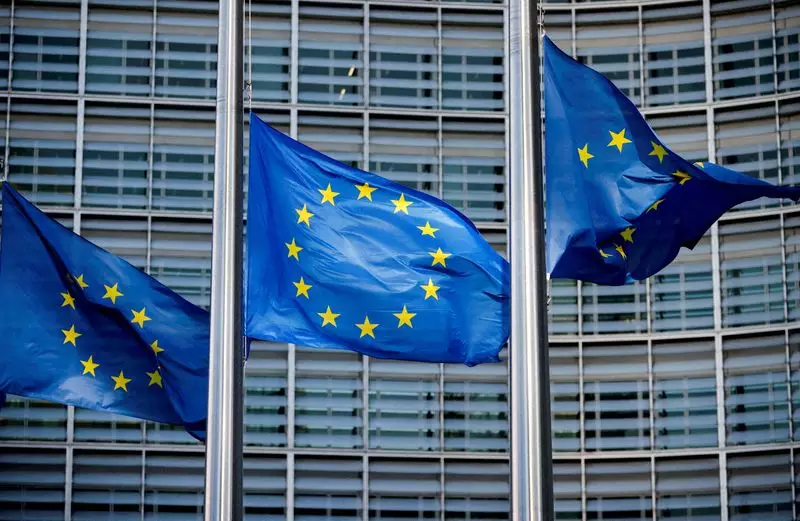European Union countries have come together to agree on a new package of sanctions against Russia in response to its ongoing war in Ukraine. This 14th package includes the first-ever restrictions on Russian gas, specifically targeting re-exports of Russian liquefied natural gas (LNG) in EU waters. While the package falls short of completely banning imports, similar to what was done with Russian seaborne oil in 2022, it does impose limitations. Despite this, experts in the gas market believe that the impact of these measures may be minimal, as trans-shipments of gas via EU ports to Asia account for only around 10% of total Russian LNG exports.
In addition to restrictions on Russian gas exports, the new package of sanctions also targets three specific Russian LNG projects. Furthermore, the package includes a clause that would allow Sweden and Finland to cancel any existing contracts for Russian LNG. The goal of these sanctions is to further deny Russia access to key technologies, strip the country of additional energy revenues, and address issues related to President Vladimir Putin’s alleged shadow fleet and shadow banking network abroad. European Commission President Ursula von der Leyen has expressed support for these measures, emphasizing their significance in the ongoing conflict.
The process of reaching an agreement on these new measures was not without its challenges, as EU countries debated the proposals for over a month. Ultimately, certain aspects of the sanctions package were watered down at the request of Germany. One such proposal that was dropped aimed at preventing further circumvention by forcing subsidiaries of EU companies in third countries to prohibit re-exports of their goods to Russia. This decision came after Germany called for an impact assessment on the measure, leaving open the possibility of its inclusion at a later date. The EU remains focused on preventing the flow of dual-use technology that could potentially be utilized by Russia for military purposes.
The new package of sanctions also includes tightened measures against the so-called shadow fleet that is involved in moving Russian oil beyond the price cap set by the Group of Seven (G7) nations. In addition to adding tankers to the list of sanctioned entities, at least two Russian-owned ships involved in transporting military equipment from North Korea have also been targeted. This move comes as Russia and North Korea have strengthened their ties since Russia’s invasion of Ukraine in 2022. The two countries recently signed an agreement to provide mutual military assistance in the event of armed aggression, following a visit by President Vladimir Putin to Pyongyang.
The new package of sanctions is set to be formally approved by EU foreign ministers when they meet on Monday. With the addition of 47 new entities and 69 individuals to the EU sanctions list, the total number now stands at 2,200. The aim of these sanctions is to further isolate Russia, limit its access to key technologies, and undermine its financial resources amid the ongoing conflict in Ukraine. By taking these measures, EU countries are sending a strong message to Russia and the international community about their commitment to supporting Ukraine and upholding democratic values.

